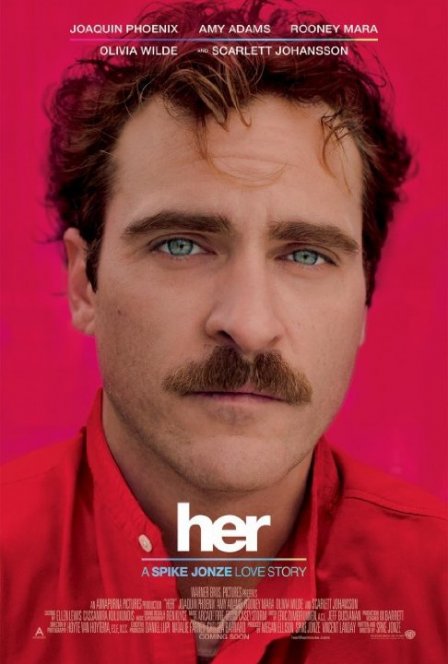In Dave Eggers’s The Circle, he tells the story of Mae Holland, the newest employee at the world’s most powerful internet company, The Circle. The company tracks everything: users’ emails, social media, bank accounts, heartbeats. The universal operating system seeks to “complete the circle” via total transparency of its users, and the slogan “Privacy is theft” is repeated throughout the novel. Mae is initially thrilled with the company’s modernity and idealism, and in awe of the minds working there, but this quickly turns into shame and fear as she is admonished for not streaming her every private move for the “benefit” of the community. “Sharing is caring,” they tell her. In one pivotal scene, she is used (unknowingly) by a lover/co-worker for his new app, TruLuv, a dating device that exposes your prospective date’s every preference. Mae’s history of food choices, travel plans, retail purchases, drinking habits, and hobbies are displayed for the entire company during an afternoon demonstration. She tries to hide. It’s impossible. The book unravels as a modern day horror story.
But in Spike Jonze’s Her, recently-divorced Theodore Twombly (Joaquin Phoenix), willingly gives, sacrifices, even begs an Operating System (voiced by Scarlett Johansson) to love him, control him, watch him sleep. Unlike Eggers’s relentlessly detailed programming software and terrifying accounts of first world problems gone amuck, Her hardly mentions how, exactly, OS1 is introduced into the tech field (signed agreements, licensing, data use), and this implies the even creepier subtext that no one, not even the audience, really cares. Not even Jonze, who thinks he wrote a love story. Within seconds, Twombly’s OS, Samantha, knows his likes, dislikes, Mommy issues, insecurities — and with the exception of a few “You’re kind of nosey” exclamations, Twombly never hesitates to allow the programming to wash over every detail of his life. “Can I take a look through your hard drive?” “Um, okay.” He’s a very good consumer, a dream bottom for the internet corporations topping us all. When they have cyber sex, Twombly moans, “I’m inside you.” But, really, Samantha is inside of him, recording every thought and gesture as data for its (her) own development as a god. I thought of Shane Carruth’s Upstream Color and the demonic maggot-like organism wiggling its way inside people’s bodies, changing them, transforming them, and the sense of desperation that leads a character to cut herself open with a butcher knife. If the internet hasn’t ruined any part of your life at all, then good for you — stay that way. For most of us, it runs our blood.
Anything pumped out as “Best Movie of the Year” leaves me feeling like I’m covered in movie theatre nacho cheese. But the amount of positive press Her is generating is hardly surprising — people love to be catered to, and the aesthetics of Her wash over you like a Gap commercial drenched in coffee: the Arcade Fire score is melancholy and barely there, ScarJo vocally oozes all over the screen, and Joaquin Phoenix looks like a eunuch in his soft high-waisted pants. It all goes down so nice and easy, a lush and creamy void of love and connection. Slap an Oscar on it! Forget that it’s a quasi-nightmare of where we’re heading as internet-worshipping addicts. What gets obscured behind those furry eyebrows and perfect spectacles is the acceptance of a man who’s run out of places to go, who has submitted to the paradigm of capitalist authoritarianism via the sexily-voiced “Girlfriend Experience” software program. But this seems to be too ugly of a truth for Jonze: the movies are still a reprieve from the horrible real world, so let’s give the audience a story that’s a bit, I don’t know, nicer. Funny how a movie about the internet, in which delusion and projection join hands, is deluding itself into thinking it’s something it’s not. One quick look at the obnoxious poster reveals Phoenix’s Twombly staring soulfully into the camera with oceanic blue eyes conveying depth, real sadness. Guess they forgot that Phoenix’s eyes are actually brown.
A slave to woman, a slave to technology, a slave to commerce, Theodore Twombly is a soft sack of shit. The difference between Jonze writing him and someone like Charlie Kaufman writing him is that Kaufman would know just how much of a piece of shit Twombly is; Jonze makes him out to be an emotionally damaged hero waiting to be conquered by love. Adaptation and Being John Malkovich are proof that Jonze is simply no match for the explosiveness of his more devastated peer and former collaborator. Her is overwhelming in its narcissistic pity and entitled idleness. Its simplicity is especially condescending when there are corridors of menacing and horrifying truths about our capitalistic ennui just waiting to be explored, yet are overlooked in favor of weak-handed sentimentality. There exists, however, a few glimpses of raw meat — most notably Rooney Mara as Twombly’s ex-wife: “He wanted to put me on Prozac and now he’s in love with his laptop.” And Olivia Wilde’s very brief cameo as Twombly’s sole IRL date is brutal in its cutting exposure of the man’s emotional vacancy and inability to relate to anything not plugged in. But there are too few moments of goodness to make the film worth sitting through. There’s nothing you’ll see in this film that you can’t find on your own computer, and why pay money to experience the exact same thing as looking at the internet? Is easy emotional satisfaction really worth $15? Of course it is: we’re all sluts for love. Even if that idea of love requires us to sacrifice our autonomy and enslave ourselves to a gadget. At least that’s what Spike Jonze wants to call a romance. I call it a nightmare.

